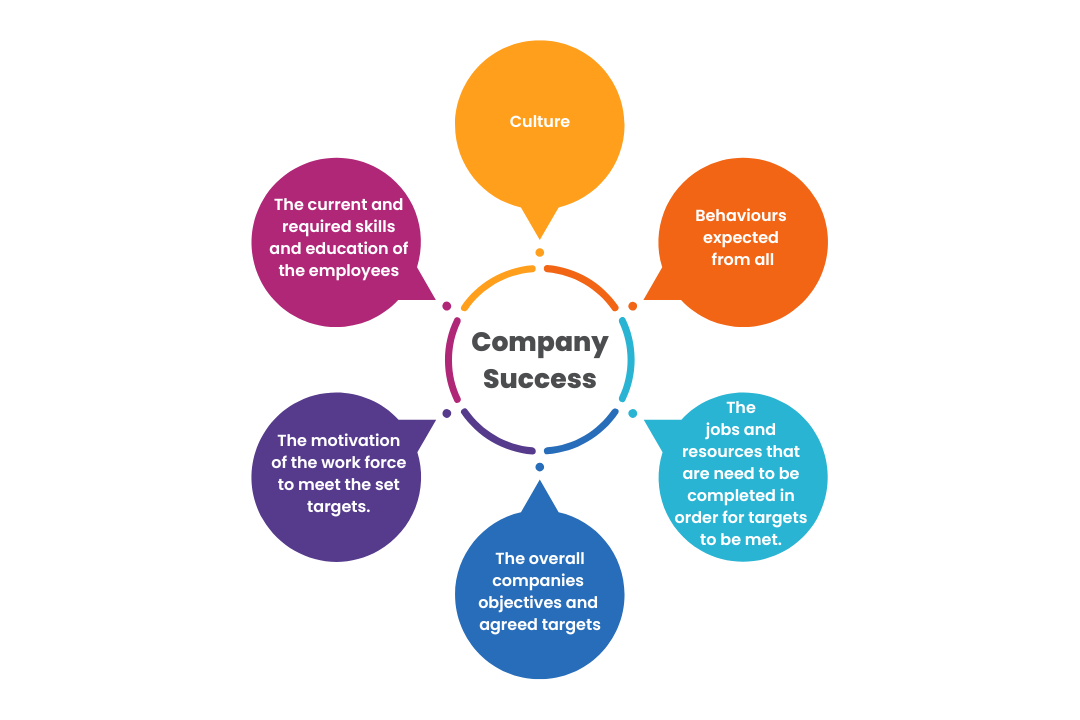What is Performance Management?

The mention of Performance Management stirs up different emotions among employees and managers and mostly these feelings are negative.
In 2015 Microsoft and Dell abandoned performance reviews. According to Fortune “Microsoft and Dell are ditching employee performance reviews”. Sensational headlines like this spark conversation around the people management world.
If this is the case what are they moving towards? Dave Calhoun, a former GE executive, once said that “the whole point of performance management is to force a conversation. Many managers hate to tell employees, rigorously and honestly, where they stand”. So does this mean that the emphasis of performance management should be placed on training the managers on how to communicate with each other using the tools that they are prescribed to force a performance conversation?
How to Manage Performance Right
Personal performance is only one of the factors of company success. Other factors are:
- The economic marketplace
- The company’s product or service
- Culture of the organisation
- The objectives that the organisation sets
So, presuming the product/service and the economic environment are good, we can start looking at factors 3 and 4.
When you begin to look at the culture, company objectives and employee and manager performance you now need to include a few more areas:

Since culture is a very complex topic and a subject of its own, let’s focus on items 2-6 and look at these in the context of the company and employee performance.
1. Behaviours and Principles
For a person’s performance to be accessed accurately you need to have a behavioural framework to assess a person’s ongoing behaviour. In progressive companies, you will have a behavioural framework where people are recruited and managed on an ongoing basis. Sometimes companies can call their behavioural framework “values”. Mostly even when progressive companies adopt this approach they only establish their behaviours or values in a once-off intervention which is normally completed by Senior Management and rarely gets reviewed.
“In my opinion, these behaviours should be reviewed at least annually to ensure they are up today with the objectives and direction of the company.” Adam Coleman, HRLocker’s CEO
2. Company Objectives
The overall objectives of the Company should be set at least once a year and should reflect 5 years, 3 years and one year (with more time spent on the one year). Even through the course of the year, these objectives could change quarter on quarter and month on month and your review system should be flexible to react to this.
When Company objectives are set they should then be cascaded from the CEO to their mean and down the organisation so at the entry level the person’s objectives should reflect the Company’s objectives in some way. The Company agreed behaviours ethics values or ethos should be reflected from senior management to the entry level. For this, to work the minimum has to be quarterly conversations between employees and their managers.
3. Skills, Education and Training
Skills, education and training. Those, in most organisations, get assessed when a person joins the company and is taken into consideration when one or more skills are required to do a job.
“Those, in my view, need to be assessed at least yearly depending on the person’s job or their motivations for advancement.” Adam Coleman
4. Job Specifications
Most companies can have or do hold job specifications for most jobs but these specifications rarely get reviewed in fact most organisations’ job specs get created at the onset of the job and never get reviewed. Everyone’s job specification should be reviewed annually and should be initially reviewed by the individual and agreed upon by their manager.
5. Employee and Management Motivations
Of all the measurable and observable areas, this area is the most important one and easy to overlook when assessing people at work. Motivations of people change all the time and it is foolish to think that the motivations of a new graduate are anyway like the motivations of a man or a woman with 3 kids and in their 40s. Everyone’s motivations can change weekly but should be at least observed or assessed monthly.
In short performance management is really about the ongoing management of people. If you think you can roll out a successful performance management ecosystem in a company by just adopting a prescribed automated system and have it working effectively after one year you are kidding yourself.
